Movie Review – Father, The
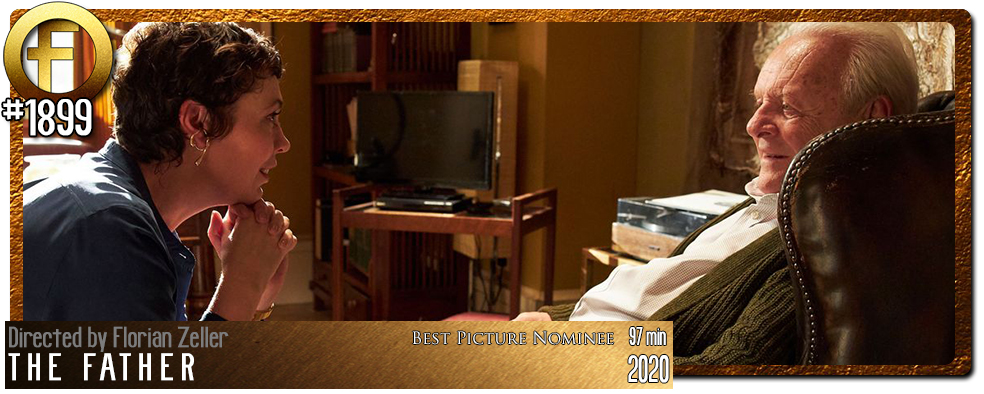
Principal Cast : Anthony Hopkins, Olivia Colman, Mark Gatiss, Imogen Poots, Rufus Sewell, Olivia Williams.
Synopsis: A man refuses all assistance from his daughter as he ages. As he tries to make sense of his changing circumstances, he begins to doubt his loved ones, his own mind and even the fabric of his reality.
********
As far as devastating films about people suffering dementia go, The Father is right up there near the top. A shattering premise, magnificently directed and with a commanding, almost career-best performance by Anthony Hopkins, The Father is undoubtedly one of 2020’s most affecting films and a project that demands to be seen simply by virtue of its all-star cast. It’s a marvellous companion piece to similarly themed works in Iris, The Savages, Still Alice and even, yes, The Notebook, and if Anthony Hopkins’ work here doesn’t drag tears from your eyes by the end you are quite possibly a robot. Based on Florian Zeller’s own play – he directs on debut here – The Father is a powerful look into dementia from the perspective of the person suffering from it; the film enjoys a mysterious and unsettling time jump and character switch format to keep the audience guessing, with the final revelations sledgehammering the viewer in the gut as you learn the truth behind the lead character’s slide into fading memory.
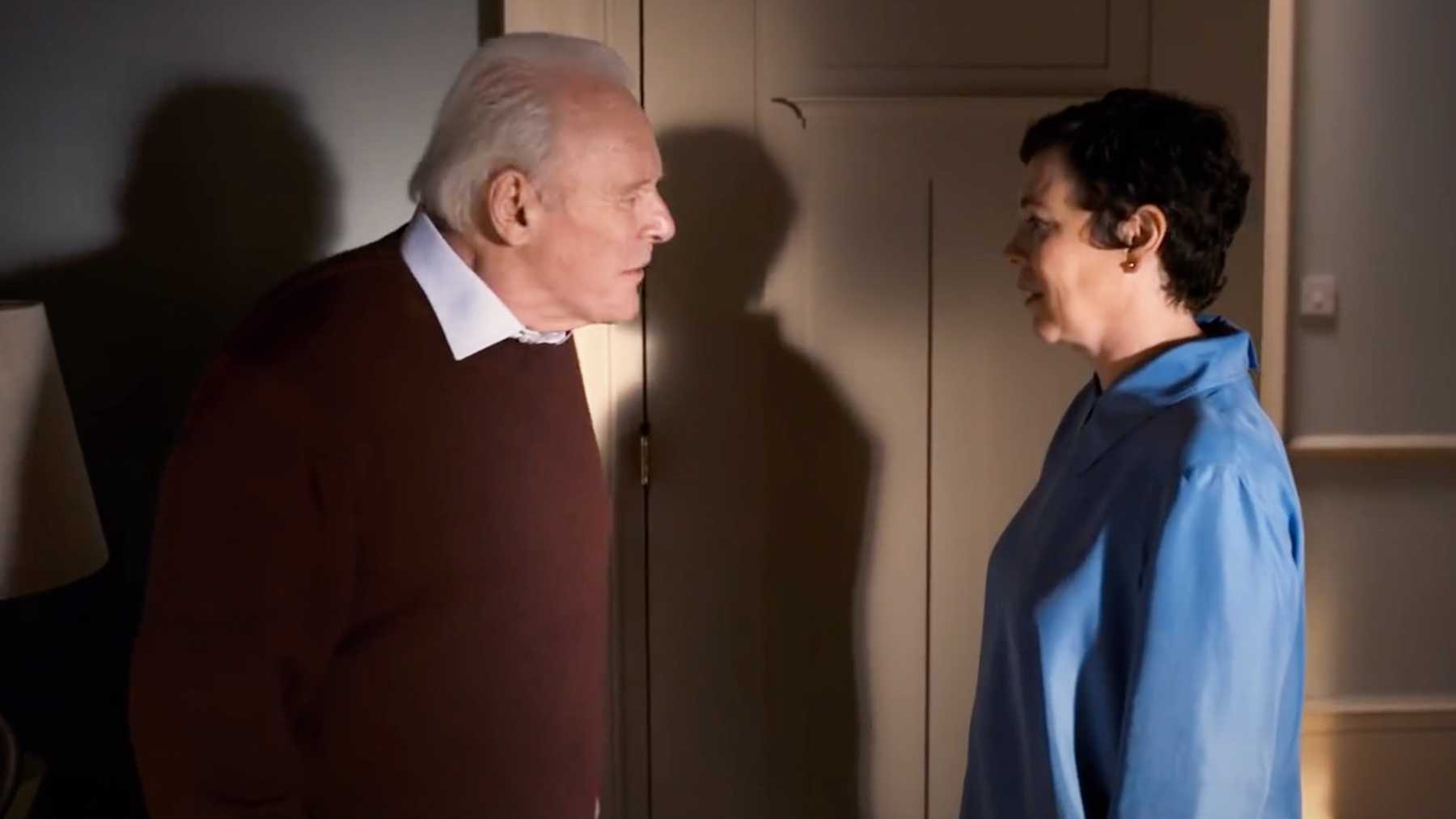
Anne (Olivia Colman – Hot Fuzz, The Crown) visits her father, Anthony (Anthony Hopkins – Silence of The Lambs) in his flat after he abuses his caretaker, ostensibly to try and placate him. Anthony has dementia and has trouble remembering simple things, such as where he left his watch, and constantly reprimands all around him that his young daughter, Lucy, hasn’t been to see him in a very long time. Anne invites a new caretaker, Laura (Imogen Poots – Need For Speed, Popstar: Never Stop Never Stopping) to take on the task of looking after Anthony, with Anne’s boyfriend Paul (Rufus Sewell – Dark City) providing little to no support for her as she steadfastly refuses to put her elderly dad into a care facility. Anne’s supposed ex-husband Paul (Mark Gatiss – Sherlock) also lands at the flat to offer similar messaging, all the while Anthony feels like he’s going crazy since Anne appears to change form (to that of Olivia Williams – Victoria & Abdul, The Seventh Son) with each alternating conversation. As the time for Anne’s departure looms, Anthony becomes more and more frantic, having trouble remembering who is who and what’s going on around him. This memory loss is also devastating for those who come into contact with him.
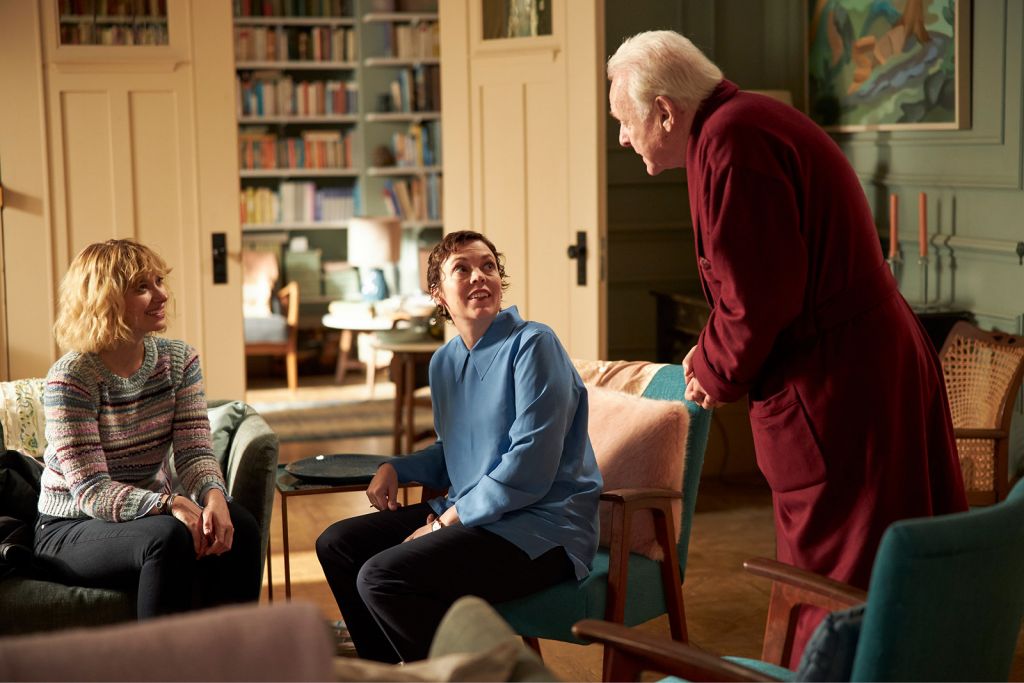
I’m struggling to come up with a comparatively strong feature film debut in recent years as Florian Zeller achieves with The Father. Zeller, a renowned playwright and novelist steps behind the camera with an assemblage of some of Britain’s finest acting talent and without question knocks it out of the park. It’s one thing to understand story and character, and how to write for the stage, but it’s an entirely other thing to innately get how to bring something so talky and so profoundly moving to the screen. After all, what works on stage doesn’t always translate so easily to the cinema screen format, yet that is exactly what Zeller achieves in what can only be described as a masterstroke of directorial prowess. The Father is a resounding success on every front, although you kind of expect the performances to be great given who is in this thing. It’s the remarkable job behind the camera that makes the end result all the more jaw-dropping. Zeller’s keen eye for framing, his unique editorial flourishes and a rock-solid story underpinning the fragility of the human mind ensure The Father will go down as one of the all-time great post-millennial film debuts by a director.
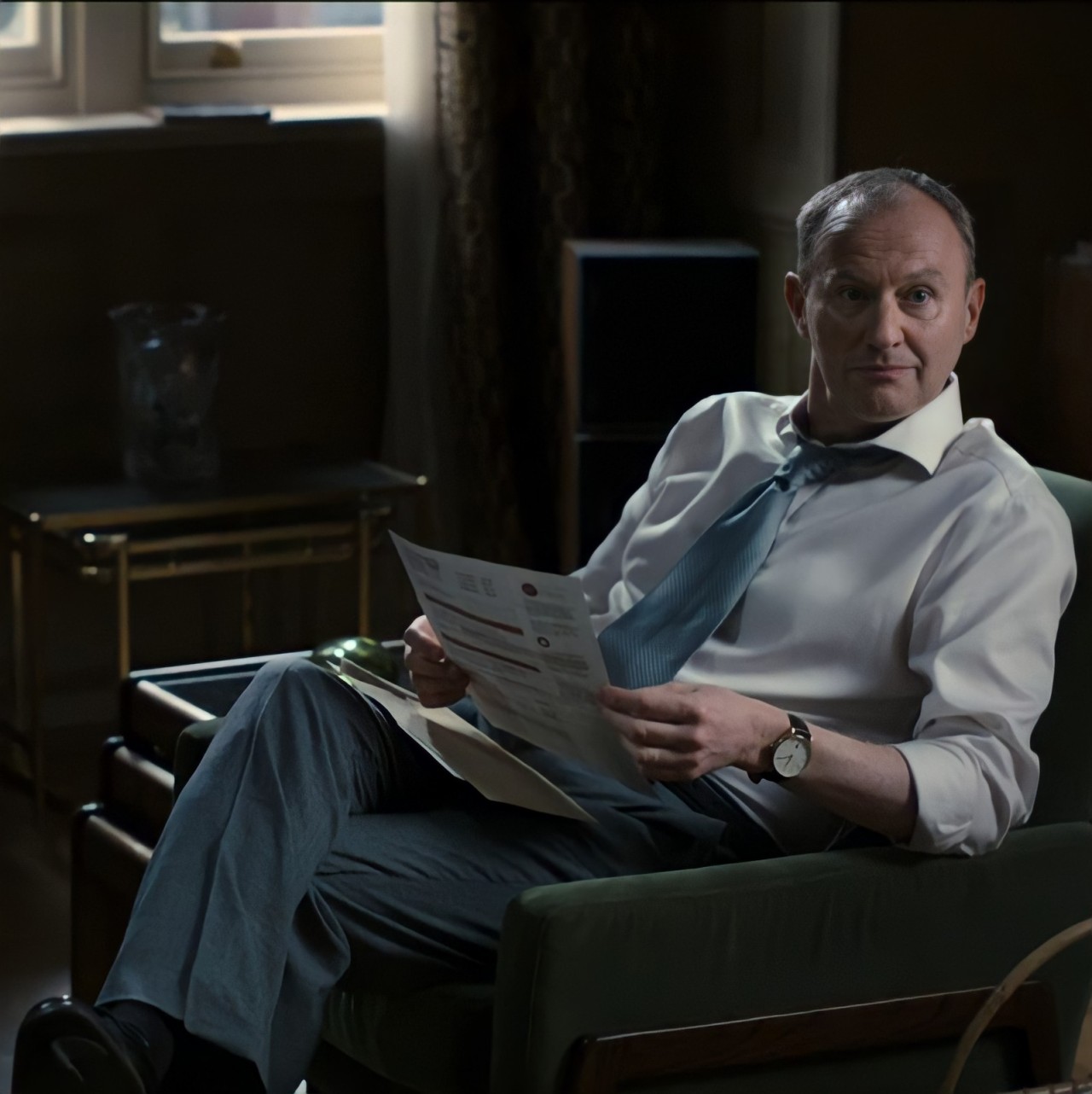
At times a mystifying puzzle, at times a heart-breaking drama, The Father’s storyline doesn’t unfold in linear time or space. Instead, it throws the audience into various loops of trying to work out exactly who, and what, Anthony is remembering as the film progresses. Olivia Colman’s Anna body-swaps out for Olivia Williams at one point, while Mark Gatiss’ character suddenly turns into Rufus Sewell inexplicably, with Anthony Hopkins looking as befuddled as I was whilst watching. The film’s unique perspective is from the ageing Anthony’s rapid memory decline and it makes for jarring, and entirely confronting, viewing. His addled brain doesn’t work like it should, and Zeller gives us the cinematic equivalent of being thrown headlong into this kind of fractured and terrifying experience by unrolling his characters and their fates with all manner of time jumps. One moment we’re in the past, the next we’re in the present, and at one point nobody is who they say they are. For the casual viewer it could be quite confusing, with Zeller meta-textualising the experience for us as to what it must be like for somebody with dementia. Honestly, I found it refreshing. Whereas films such as Iris and Still Alice play things in a straight line, as with the human brain The Father zigzags all over the place emotionally and dramatically.
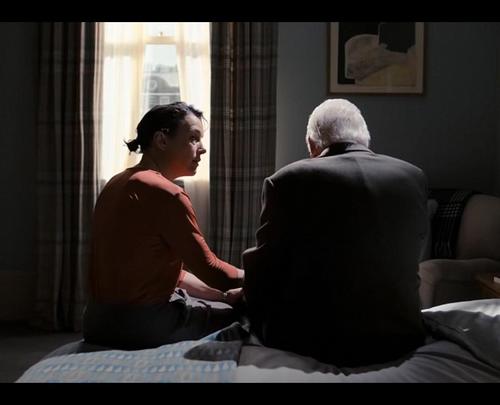
Zeller also showcases a strong visual style as well, avoiding cliched pitfalls and cinematic tropes to deliver a film that flat-out devastates the persistent watcher. The way the set changes to reflect different moments of Anthony’s memory, the way characters flit and float through the circular pathways of the apparently sprawling apartment, the way we start some scenes at the end before we reach the beginning; it’s all reflective of the toll dementia takes upon a person, and whilst Colman, Poots, Sewell et al display the requisite amount of sorrow watching Hopkins’ Anthony deteriorate, it’s the former Hannibal Lecter himself who incinerates the screen with this molten hot portrayal of a man beset by an (as yet) incurable disease. His frustration, anger, resentment, sorrow and sheer torment of not being able to grasp what’s going on is palpable, emanating from the screen in a commanding portrayal that never wavers, nor ever slides into maudlin cliché. Hopkins’ work is one of great subtlety, affected tics and attention to the minutest detail, and it’s little wonder he was nominated for Best Actor.
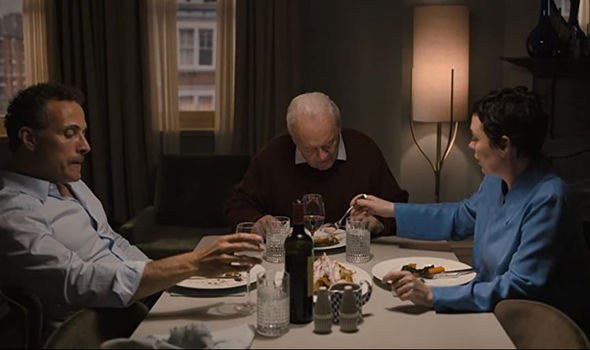
Dementia is perhaps the scariest of all diseases humans suffer from, perhaps even moreso than cancer. It’s the one disease that can leave a person otherwise in perfect health but living inside a coffin of their own mind, stripped of all their personality save the basest, most childlike instincts. It’s among the least understood human conditions, and one for which science is yet to come up with a solution. Whereas cancer is treatable or specifically deadly, and one who has it can often come to a sense of closure about their fate, dementia leaves a different and often raggedly lasting toll on the sufferer and their family, because those who suffer it don’t even know it. It’s a careful director who can turn one of the great human tragedies into a film bristling with emotional weight without nudging overly sentimentalising the condition. I think Florian Zeller’s carefully constructed screenplay from his own play, together with superb production design and both cinematographic and editorial restraint, maximise the potency of such a ripe premise to a degree a traditional film might never accomplish. It’s very, very rare a straight up drama film becomes even better on repeated viewings, but in a similar manner to the mystery films of M Night Shyamalan, the ending ties up many of the carefully plotted moments earlier in the film that you have to go back and rewatch it just to see how much, or what, you missed.
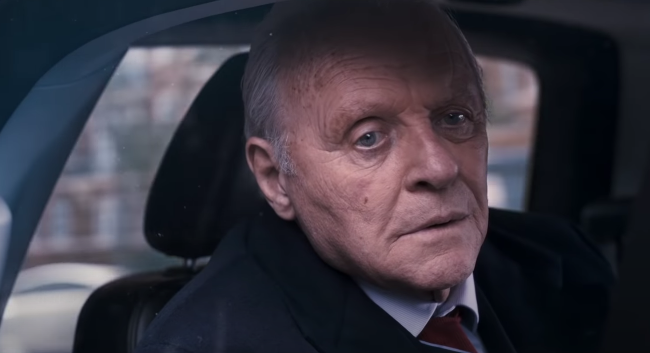
The Father is superb. It’s a shattering, devastating work of fiction that slays the audience with an accurate and ambitious representation of what it is like to suffer from this horrendous disease. Folks who have endured losing a family member to dementia will most likely be effected in more profound ways than those who haven’t yet, and as one who has I can say the film brought me to tears several times with empathetic attachment. While the entire cast are excellent, with Colman in particularly a standout – when is she not, though? – it’s Anthony Hopkins performance that obliterates all before him in one of his finest turns on screen. That an actor can go from the rancid work he delivered in that stupid last Transformers movie to this is staggering; Hopkins may have accidentally tripped into a last-act career resurgence with The Father, such is the power and raw emotional honesty he delivers to the screen. The Father is absolutely essential viewing.
